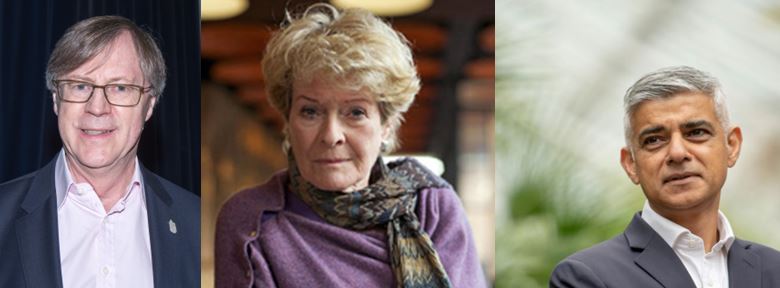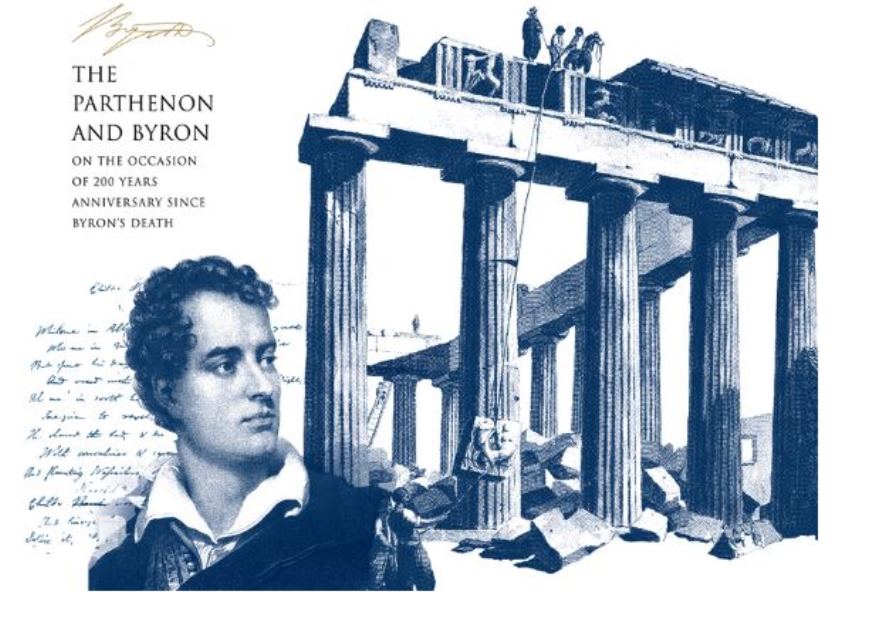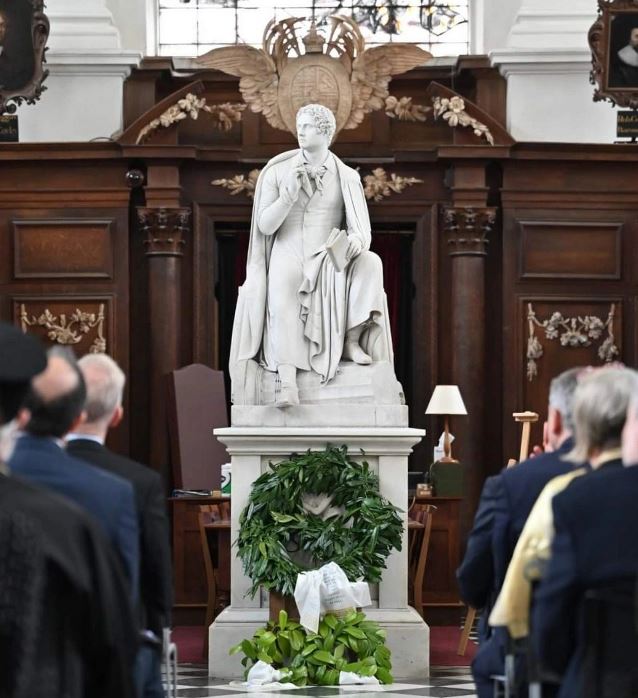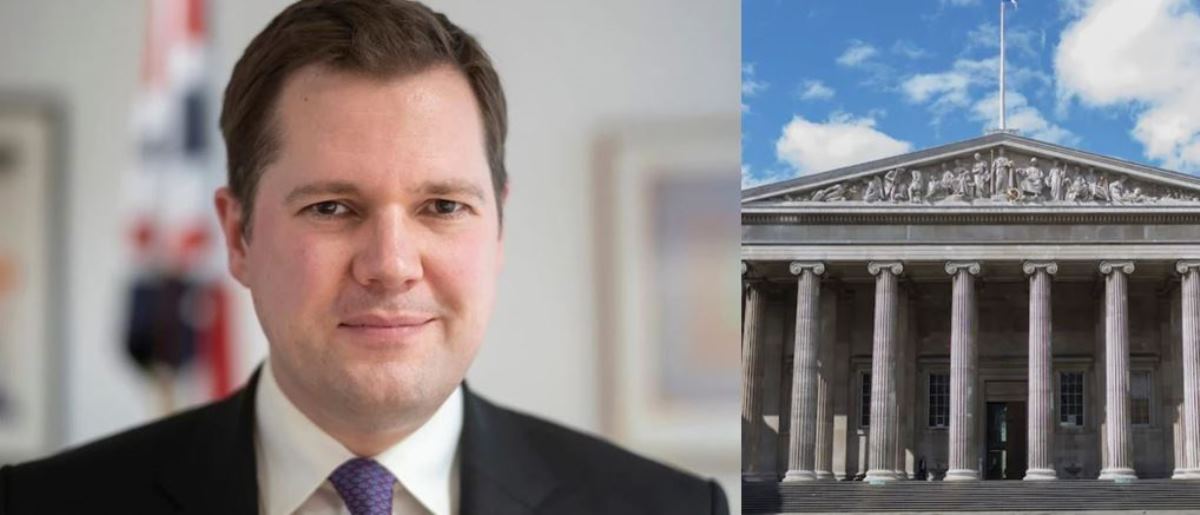James Cuno, director of the Art Institute of Chicago, seems to spend more time travelling the world promoting his books than he does looking after the encyclopedic collections over which he presides.
Yesterday evening an audience of around 60 people — academics, students, journalists and others — assembled at the London School of Economics to listen to Cuno rehearse his now familiar arguments about the ownership and fair distribution of cultural property. There on the panel to challenge him were Tatiana Flessas, professor of cultural property law at the LSE, and Dr Maurice Davies, deputy director of the Museums Association.
Cuno's big idea is that the collections of the world's great encyclopedic museums are being used as a political football by so-called "nationalist cultural property retentionists" — which is his derogatory term for source nations who were robbed of their material heritage during the imperial era and who would now like some of it returned, please.
During his allocated ten minutes, Cuno offered a summary of what has become his idée fixe, which is that most calls for the return of cultural objects are motivated by a creeping nationalism that he finds sinister and destructive. In support of his ideas, he loves referring to "cultural hybridity" "alterity", "the fluidity of cultural identity" and other tropes drawn from the discourses of cultural politics and post-colonialism. At root, however, his mission is to shore up the concept of the encyclopedic museum — a fortress whose boundaries are everywhere under challenge. Once again he reiterated the patently absurd notion that encyclopedic museums should be established everywhere.
Cuno's highly political presentation — which, paradoxically, sought to criticize what he saw as the politicisation of culture by source nations — was followed by a few short comments from Tatiana Flessas.
Professor Flessas sought to point out that many encyclopedic museums are themselves national creations and are thus also instruments of nationalist agendas — actors taking up nationalistic positions by claiming the power to interpret, contextualise and assign meanings to the objects in their collections. "That building up the road is not a branch of museums UK plc, it is The British Museum", she said, drawing one the few ripples of laughter in an otherwise rather po-faced evening.
Maurice Davies referred to Cuno's suggestion that Italy, and effectively all countries east and south of it, are guilty of devising retentionist laws (in contrast to an implied suggestion that Britain and America do not). But he countered that Britain too has its nationalist retentionist laws to claim ownership of ancient artefacts uncovered from its soil, as does the US with its own national claims over newly discovered native American objects — "so there's a lot of nationalism about", he convincingly concluded.
Davies went on to speak of his experience in helping to forge legislation and resolve disputes concerning human remains. "I have no problem with culture being political," he said. "If repatriation of remains can return a tiny amount of power to Aboriginal peoples, a tiny amount of what was taken from them through colonialism, then that can only be a good thing." He also pointed out that former Metropolitan Museum director Philippe de Montebello had confirmed that the return of the Euphronius krater to Italy (after a welter of legal pressure forced its hand) ultimately resulted in a new wave of cultural cooperation between the two countries and a host of fresh Italian loans to the Metropolitan Museum. Cuno dismissed this as negligible and insisted that relations between the two nations were still not that good. Unlike Montebello, who saw the benefits that issued from the affair, Cuno risks coming across as a bad loser.
Finally, it was the turn of the audience to participate, but unfortunately the Institute of Ideas mistook it for an edition of the BBC's Question Time and chose to allow several members of the audience to ask their questions one after the other before turning to the panel for responses. As a result, many good questions were left unanswered and none of the panellists were pressed on any point. Events like this rely on a good authoritative chair with a sound grasp of the issues to steer the discussion. Sadly, last night we didn't have one.
One young woman valiantly tried to throw some light on the issue of the Parthenon Marbles, asking: "What does the panel suggest Greece might do to move beyond nationalism and advance its claim for return of the Marbles?" This was another good question not properly addressed, although it drew this from Tatiana Flessas: "The British Museum will literally have to fall into a hole in the ground before it gives up the Parthenon Marbles and if that's not national and nationalistic, what is?"
Finally, there were lots of calls for transparency (another nebulous buzzword), but again no clear steer on the issue. One thing that is rarely if ever talked about is the relationship between museums and the art market. As long as there is no transparency in the art market (and without some form of regulation this is not likely to change), there will never be transparency where collecting and museums are concerned.
Events like this often end up generating more heat than light. This one left us all in the cold and dark. But at least James Cuno shifted a few copies of his book, on sale outside the conference room, which I suppose was the real point of the evening.
Inexplicably, two thirds of the way through the event's allocated time, with plenty left to discuss, the chair announced it was time to get down to the pub. I suggested that before retiring to the boozer, could we please have a show of hands on the return of the Parthenon Marbles?
The result: 29 in favour of return, 32 against.
Sometimes only a couple of beers will dispel the gloom.
--------------------------------------------------------------------------------
Breaking news update
The New York Times has just weighed into this debate again, John Tierney filing a piece here criticizing Egypt's antiquities tsar, Zahi Hawass for his avowed determination to seek the return of significant Egyptian antiquities held in Western encyclopedic museums.
Unsurprisingly, Tierney quotes Cuno: "It is in the nature of our species to connect and exchange. And the result is a common culture in which we all have a stake. It is not, and can never be, the property of one modern nation or another."
Meanwhile, these objects remain the property of Western nations whose encyclopedic museums benefit from the revenues generated by these objects through cultural tourism, etc. Possession is nine tenths of the law and 100 percent of the revenues too.





Comments powered by CComment